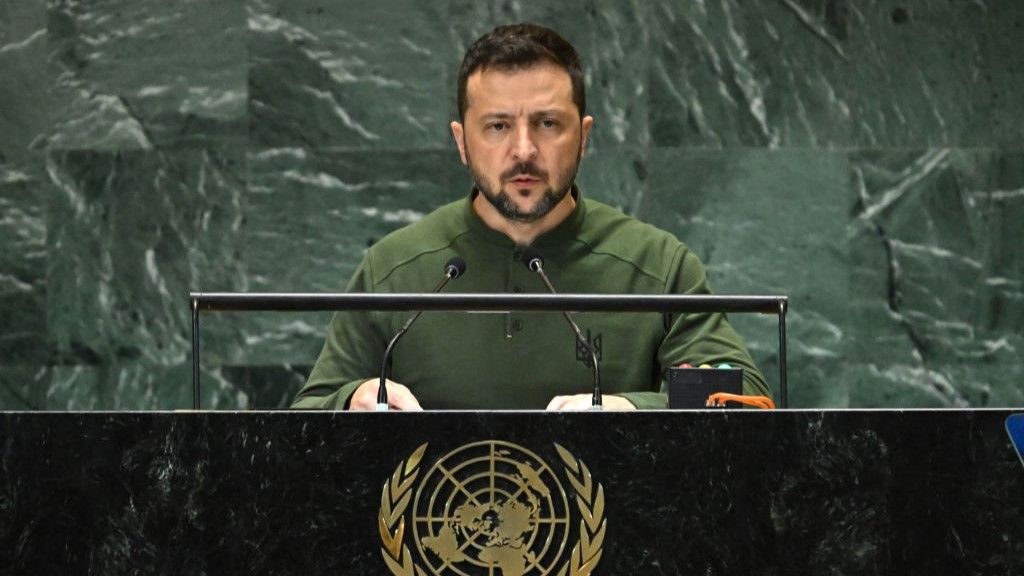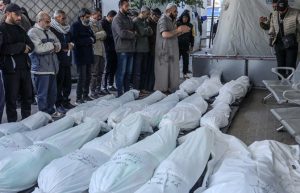
As Ukrainian President Volodymyr Zelensky prepares to unveil a comprehensive “victory plan” to President Joe Biden this Thursday, Kyiv is looking for robust support from the U.S. leader during his final months in office. A senior Ukrainian official emphasized the desire for Biden to “make history” with decisive backing.
While specific details of the plan remain confidential, it is expected to include requests for additional military and financial aid, alongside future security assurances. Zelensky has framed this initiative as a crucial step toward ending the war, arguing that increased support from the West could push Russian President Vladimir Putin toward negotiations.
“This war can’t be calmed by talks. Action is needed,” Zelensky asserted during a recent address to the UN Security Council, highlighting the urgency of the situation.
In a strategic public relations move, Zelensky aims to counter critics in the U.S. who question the wisdom of further financial investment in Ukraine. By promoting a clear path toward eventual peace, he hopes to reinforce the rationale for continued support.
Zelensky is heavily engaged on the diplomatic front this week, participating in various high-profile events at the United Nations. He has already spoken on UN reforms and addressed the Security Council, with a speech to the General Assembly planned. In addition, he is meeting with global leaders and U.S. lawmakers, including a recent visit to an ammunition factory in Scranton, Biden’s hometown, which produces shells for Ukrainian artillery.
Time is of the essence for Zelensky; he believes that the victory plan must gain traction and strengthen Ukraine’s position by the end of this year. In an interview with The New Yorker, he remarked, “This plan is designed, first and foremost, with Biden’s support in mind.” However, securing that support is uncertain, and Zelensky is acutely aware that a change in U.S. leadership could significantly alter the dynamics. Former President Donald Trump, at a recent rally, dismissed Zelensky as “the greatest salesman in history,” criticizing the substantial financial aid Ukraine has received.
Trump has expressed a willingness to push for a negotiated settlement between Russia and Ukraine, a scenario that raises fears in Kyiv of having to concede territory without solid guarantees against future aggression. This looming prospect is driving Zelensky’s diplomatic push for the victory plan, as skepticism remains regarding its potential to bring Russia to the negotiating table.
The victory plan will also be presented to key U.S. lawmakers, including Trump and Vice President Kamala Harris. Trump’s rhetoric about ending the conflict within 24 hours has alarmed many, as it suggests he might advocate for terms unfavorable to Ukraine.
With the U.S. elections approaching, this is a pivotal moment for Zelensky, particularly as Russian forces continue to advance in eastern Ukraine. Military analysts, like Mykhailo Samus from the New Geopolitics Research Network, argue that a primary objective of the victory plan should be to “hit Russia strongly.” Granting Ukraine the capability to strike military infrastructure within a 300 km range could significantly disrupt Russian operations and fortify Ukraine’s ongoing efforts.
Currently, Ukraine has been successfully utilizing attack drones against Russian targets, but long-range missiles could penetrate more fortified sites. There are expectations that the victory plan will call for an increase in these missile supplies, as stated by Olga Rudenko, editor-in-chief of the Kyiv Independent.
In addition to military support, financial assistance is also critical, along with leveraging Ukraine’s unexpected advances into Russia’s Kursk region as part of the overall strategy. Security guarantees, particularly Ukraine’s aspirations for NATO membership, are expected to be included in the plan. Andriy Yermak, head of Zelensky’s office, confirmed that Ukraine’s invitation to NATO is integral to the victory strategy.
While Zelensky’s office dismissed claims of a potential localized ceasefire as “fake news,” there are voices, including Czech President Petr Pavel, who suggest that parts of Ukraine may remain occupied for an extended period. Many Ukrainians, like Dmytro, a 31-year-old who was injured by a Russian drone, express an unwavering commitment to reclaiming their territories, insisting that a truce would merely allow Russia to regroup.
Zelensky shares this sentiment, warning against a “frozen” conflict that could leave lasting dangers for Ukraine. As the situation unfolds, the pressure on Biden to respond positively to Zelensky’s plans will be a key factor in shaping the future of Ukraine’s fight for sovereignty.







